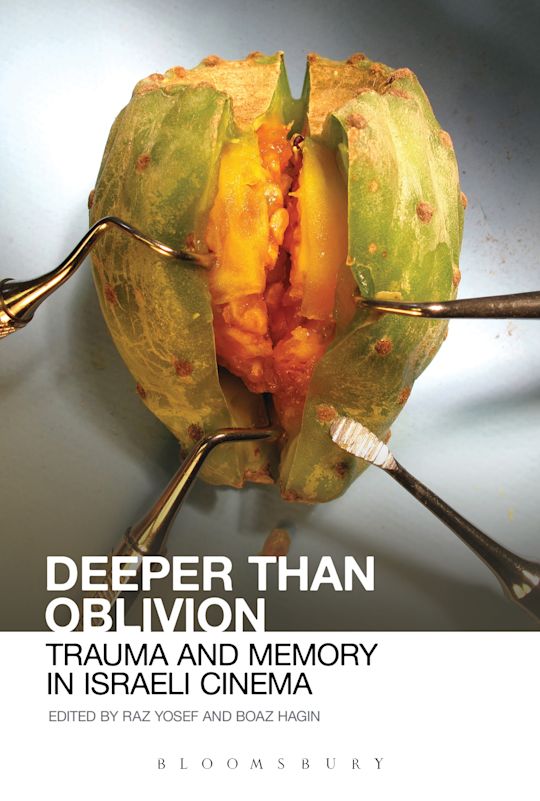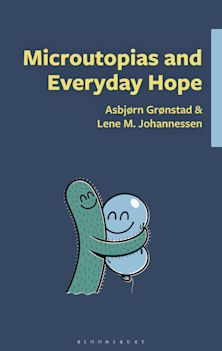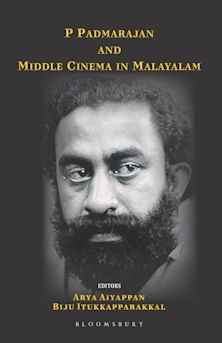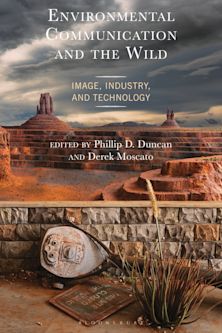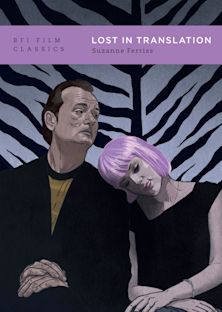- Home
- ACADEMIC
- Film & Media
- Film and Media Studies - Other
- Deeper than Oblivion
Deeper than Oblivion
Trauma and Memory in Israeli Cinema
Deeper than Oblivion
Trauma and Memory in Israeli Cinema
You must sign in to add this item to your wishlist. Please sign in or create an account
Description
In this collection, leading scholars in both film studies and Israeli studies show that beyond representing familiar historical accounts or striving to offer a more complete and accurate depiction of the past, Israeli cinema has innovatively used trauma and memory to offer insights about Israeli society and to engage with cinematic experimentation and invention.
Tracing a long line of films from the 1940s up to the 2000s, the contributors use close readings of these films not only to reconstruct the past, but also to actively engage with it. Addressing both high-profile and lesser known fiction and non-fiction Israeli films, Deeper than Oblivion underlines the unique aesthetic choices many of these films make in their attempt to confront the difficulties, perhaps even impossibility, of representing trauma. By looking at recent and classic examples of Israeli films that turn to memory and trauma, this book addresses the pressing issues and disputes in the field today.
Table of Contents
Chapter 1:
Sweet on the Inside: Trauma, Memory, and Israeli Cinema
Boaz Hagin and Raz Yosef
Chapter 2:
Postscript to Israeli Cinema: East/West and the Politics of Representation
Ella Shohat
Chapter 3:
Gender, the Military, Memory, and the Photograph: Tamar Yarom's To See If I'm Smiling and American Films about Abu Ghraib
Diane Waldman
Chapter 4:
The Event and the Picture: David Perlov's My Stills and Memories of the Eichmann Trial
Anat Zanger
Chapter 5:
The Agonies of an Eternal Victim: Zionist Guilt in Avi Mograbi's Happy Birthday, Mr. Mograbi
Shmulik Duvdevani
Chapter 6:
Traces of War: Memory, Trauma, and the Archive in Joseph Cedar's Beaufort
Raz Yosef
Chapter 7:
Memory of a Death Foretold: Fathers and Sons in Assi Dayan's “Trilogy”
Yael Munk
Chapter 8:
Queering Terror: Trauma, Race, and Nationalism in Palestinian and Israeli Gay Cinema during the Second Intifada
Raya Morag
Chapter 9:
“Our Traumas”: Terrorism, Tradition, and Mind Games in Frozen Days
Boaz Hagin
Chapter 10:
History of Violence: From the Trauma of Expulsion to the Holocaust in Israeli Cinema
Nurith Gertz and Gal Hermoni
Chapter 11:
Last Train to the Holocaust
Judd Ne'eman and Nerit Grossman
Chapter 12:
Passages, Wars, and Encounters with Death: The Desert as a Site of Memory in Israeli Film
Yael Zerubavel
Chapter 13:
“Walking through walls”: Documentary Film and Other Technologies of Navigation, Aspiration, and Memory
Janet Walker
Notes on Contributors
Index
Product details

| Published | 06 Jun 2013 |
|---|---|
| Format | Ebook (Epub & Mobi) |
| Edition | 1st |
| Extent | 384 |
| ISBN | 9781441199263 |
| Imprint | Bloomsbury Academic |
| Illustrations | 20 bw illus |
| Publisher | Bloomsbury Publishing |
About the contributors
Reviews
-
This intriguing collection of essays provides a perceptive and thought provoking look at Israeli cinema and its relations to Israeli society. It contains various approaches to the cinematic contemplations of 'trauma' in Israeli film, which shed new light on the fundamentals of the Israeli experience in the past decades. In going beyond the commonly discussed canon of Israeli films, the articles in Deeper than Oblivion illustrate the contour of a novel framework for the reading of Israeli cinema and its cultural significance. It is an essential addition to the growing scholarship on Israeli culture.
Ofer Ashkenazi, Koebner-Minerva Center for German History, The Hebrew University, Jerusalem
-
This timely collection offers a spectrum of critical perspectives on Israel's past and present through the lens of its cinema. In addition to examining a wide range of reactions to trauma and memory, the essays explore the tension between fiction and documentary, space and identity, and aesthetics and politics. The engaging book reveals the richness of Israeli cinema and its astonishing resonance for us today.
Anton Kaes, Professor, Department of German, University of California, Berkeley, US, and author of Shell Shock Cinema: Weimar Culture and the Wounds of War
-
This collection of sophisticated articles exposes how Israeli cinema navigates the web of traumas that constitute the collective national memory as well as threaten the coherence of the familiar Zionist meta-narrative. Discussing traumas of wars, the Naqba, the Holocaust, the trauma of the perpetrator, of immigration and of dislocating others, of terrorism, of occupation, and of guilt and responsibility these articles offer critical reflection on Israeli histories and cultures.
Orly Lubin, Chair of the Porter Institute for Poetics and Semiotics, Tel Aviv University
-
Deeper Than Oblivion is an ambitious project that explores the representation of personal and collective traumas in Israeli cinema . . . [The book] does not simply constitute an introductory volume to key tropes in Israeli cinema, but presents a refreshingly in-depth study of questions of personal recollection, and collective and cultural memory . . . Yosef and Hagin have perfectly pitched their study
Elena Caoduro, University of Southampton, UK, Historical Journal of Film, Television and Radio, vol. 32

ONLINE RESOURCES
Bloomsbury Collections
This book is available on Bloomsbury Collections where your library has access.









